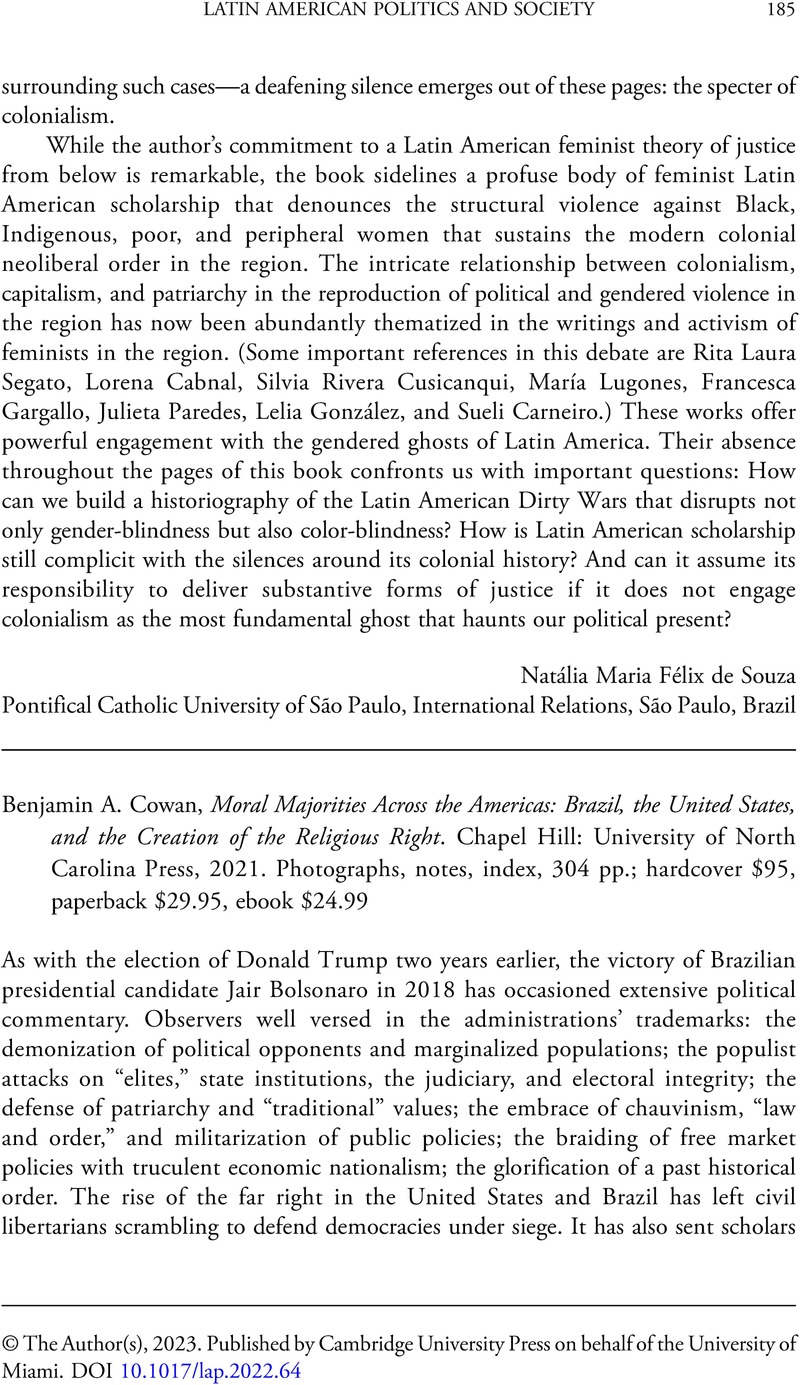No CrossRef data available.
Article contents
Benjamin A. Cowan, Moral Majorities Across the Americas: Brazil, the United States, and the Creation of the Religious Right. Chapel Hill: University of North Carolina Press, 2021. Photographs, notes, index, 304 pp.; hardcover $95, paperback $29.95, ebook $24.99
Review products
Benjamin A. Cowan, Moral Majorities Across the Americas: Brazil, the United States, and the Creation of the Religious Right. Chapel Hill: University of North Carolina Press, 2021. Photographs, notes, index, 304 pp.; hardcover $95, paperback $29.95, ebook $24.99
Published online by Cambridge University Press: 10 January 2023
Abstract
An abstract is not available for this content so a preview has been provided. Please use the Get access link above for information on how to access this content.

- Type
- Book Review
- Information
- Copyright
- © The Author(s), 2023. Published by Cambridge University Press on behalf of the University of Miami


